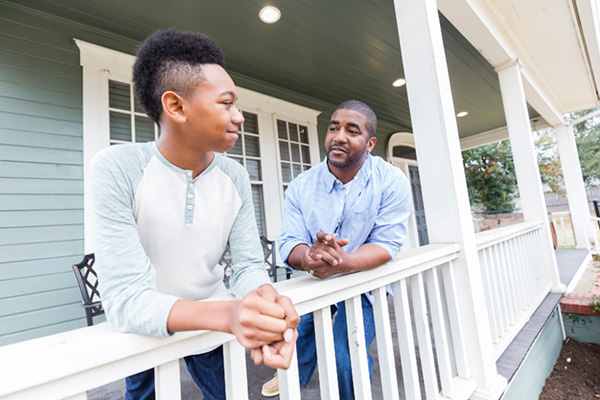The ability to communicate with our kids is a crucial parenting skill, as well as an important building block in developing a healthy parent-child relationship. During the pandemic, good communication can also reduce stress for the entire household. Whether you’re parenting a toddler or a teenager, communication is the key to building our kids’ self-esteem and a mutually respectful relationship.
Here are five tips to help you skillfully communicate with your child so that they will intuitively sense that you understand them, care about them, and respect them.
-
Actually Listen
Often, our own screen time and other distractions can negatively impact our relationships with our kids. If a child senses that we are not listening, he or she will often retreat. It’s important for us to disconnect from our screens and other activities in order to be truly present and engage with our kids.
-
Validate your Child’s Feelings
Validation and empathy are incredibly powerful. This includes validating those feelings we don’t necessarily like to see in our kids, such as anger and jealousy. Just because you validate your child doesn’t mean you agree with them (and often you won’t!), but validation and empathy help our kids feel heard and understood, so they can better manage hard feelings and situations.
-
Hold off on Consequences, Correction, and Criticism
This is a hard one—especially when you have good advice to offer, or want to tell them their punishment—but try to resist! Our kids are more likely to talk to us if they know they can do so without being lectured or criticized. There’s plenty of time for the other pieces after you’ve really heard what they have to tell you.
-
Encourage your Child to Think Proactively about Solutions
Rather than lecture or offer solutions, help your child explore their own feelings and actions, and come up with options and solutions on their own. If they can come up with a semi-reasonable approach to a problem, let them try it. When we encourage our children to become part of the solution, they often have greater motivation for resolving the issue. And when we empower them, they are more likely to come to us for help.
-
Try Writing
Sometimes kids are simply too upset or overwhelmed to engage in a conversation. Writing allows for increased time for kids to process and respond, and helps kids’ (and adults’) brains to move from a place of reactivity to a place of logic. We all know how it feels when someone speaks to us critically, or in an angry or hostile tone. It’s very common to get angry or defensive (think about your last argument with your partner). Try writing to your child—a simple, short note to offer empathy or let them know that you’re there should they want to talk (or even write back).
Communicating with our kids can be tricky. If you’re having a tough time engaging and communicating with your child, or you’re worried your child’s struggles are out of the ordinary, or you simply want some additional tools to improve communication, feel free to call us for support at 1-888-927-0839.

